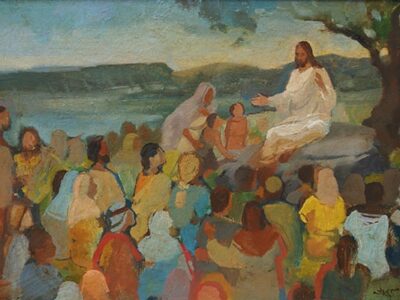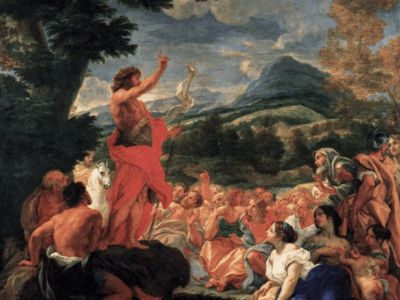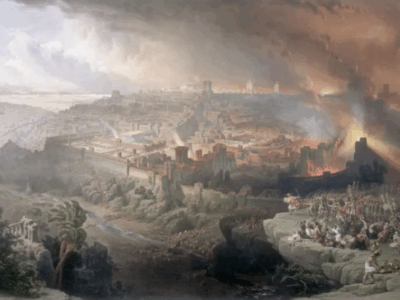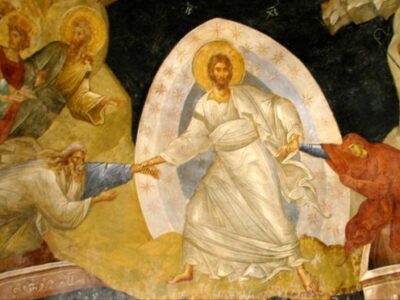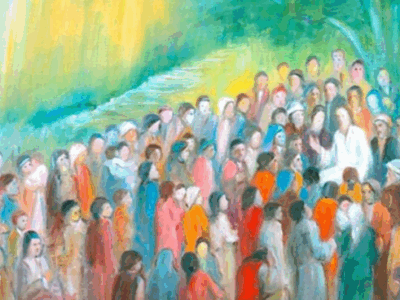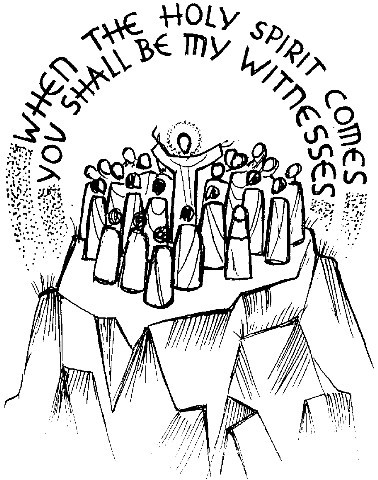
Lift Up Your Hearts
Year B
Acts 1:1-11
Psalm 47
Ephesians 1:15-23
Luke 24:44-53
May the words of my mouth O God… speak your truth…
The word Ascension… is one of those church words which may not have much… if any meaning… to those outside the church… in fact… the ascension of Christ and Ascension Day itself may seem like an obscure event… to even some church members… ] portrayals of the Ascension in art… can appear awkward… or even conflicted… with Jesus either being carried up by angels… or ascending on his own power into the clouds as though he could fly…
This may sound odd to us in the 21st century… but in the Middle Ages in Europe… Ascension Day was sometimes commemorated with a statue of Christ… that was lifted up right through the roof of the church… or with hikes up local hills and mountains… and we may wonder what theological purpose this event has for us today…
The most faith-filled answer… is that Jesus had done his part… and was preparing the way for those who would follow him… they were to begin doing THEIR work… through him and with him… in restoring the world to its eventual completion in love… and so the Ascension was not so much about Jesus… but about the disciples… and it is about us…
The Rev. Rebecca Hansen of St. Dunstan’s Church [ in San Diego ] writes… the word “ascent” or “ascension” does at least… have a straightforward meaning… it simply means to move upward… to rise… or to be lifted up… it’s often used to describe those rising in rank or in position… or even to describe the act of an airplane as it rises into the sky… in this case… the “ascension” refers to Jesus’ ascent as he was lifted up into the heavens at the end of his earthly ministry… and this event was assumed to have occurred on the Mount of Olives… forty days after his resurrection… ] and let’s remember that the Ascension has been observed by Christians since at least the fourth century… it’s one of the few affirmations we make about Jesus’ life in our ancient creeds… in the Nicene Creed… we affirm that Jesus… ascended into heaven and is seated at the right hand of the Father…
The goal of the Sursum Corda… those six lines we say at the beginning of the Eucharist… is essentially to participate in an ascension of the heart… by intentionally… and prayerfully… lifting up our hearts to God in faith… love… and joy… ] from a spiritual and emotional standpoint… this is a moment to bring our awareness into God’s presence… and in that sense… we are called to ascend to God… just as Jesus ascended to God… by lifting up our hearts… our souls… and our deepest selves to God… ] the Sursum Corda reminds us… that the Eucharist is not just about Jesus coming to be with us… but that it is a joint effort of both descension and ascension… ] that our entire spiritual journey is a joint effort that involves God coming to us… and us responding by coming to God… and that we too are called to ascend in heart… body… and mind… ] and in this way… heaven and earth are joined together for the work of God’s Kingdom…
Fr. John Meulendyk reminds us that a well-known work of music may help us better understand the Ascension… ] Italian composer Giacomo Puccini wrote La Boheme… Madama Butterfly… and Tosca… it was during his battle with terminal cancer in 1922 that he began to write Turandot… which many consider to be Puccini’s best work… he worked tirelessly on the score during his final days… despite the advice of friends to rest and save his energy… and when Puccini’s sickness worsened… he said to his disciples… If I don’t finish Turandot… I want you to finish it…
Puccini died in 1924… and his work was left unfinished… but his students gathered Turandot’s unfinished score… studied it in great detail… and then proceeded to write the remainder of the opera… the world premiere of Turandot was performed in Milan’s La Scala Opera House in 1926… and Maestro Arturo Toscanini… Puccini’s favorite student… conducted it… the opera flowed seamlessly until Toscanini came to the end of the part written by Puccini… he then stopped the music… put down the baton… turned to the audience… and announced… Thus far the master wrote… but he died…
Reportedly… there was a long pause… no one moved… it was then that Toscanini picked up the baton… turned to the audience and with eyes full of tears… and concluded… But his disciples finished his work… the opera finished with a thunderous applause… and Puccini’s piece found a permanent place in the annals of great works…
Likewise… in remembering the Ascension of Jesus… we too look up and ask ourselves… What now… What is unfinished… the answer is that Jesus ascended… so that we could begin completing his unfinished work of transforming humankind… by proclaiming God’s Good News of love by our words and actions…
When we follow Jesus and experience true ascension… we experience grace… and Luke’s Gospel illustrates that result… ] following Christ’s ascension… the text says that the disciples experienced three things… worship… great joy… and blessing… this is the same pattern of the Eucharistic prayer… and this is the pattern of the spiritual life… ] when we ascend and lift up our hearts to God… we too are filled with God’s life-giving praise… worship… blessing… and joy…
Of course… Sunday morning isn’t the only time we’re called to ascend and lift up our hearts to God… but throughout our day… we can lift up our hearts to God in moments of ascension… anytime and anywhere… if we’re aggravated by something… on the verge of losing our temper… if we’ve just been cut off in traffic… we can pause and lift our hearts up to God… ] so far from being an obscure event… ascension can be a theological reminder of how we might live out and practice our faith regularly… knowing that God has come to us… and we have been called to come to God… so lift up your hearts!

